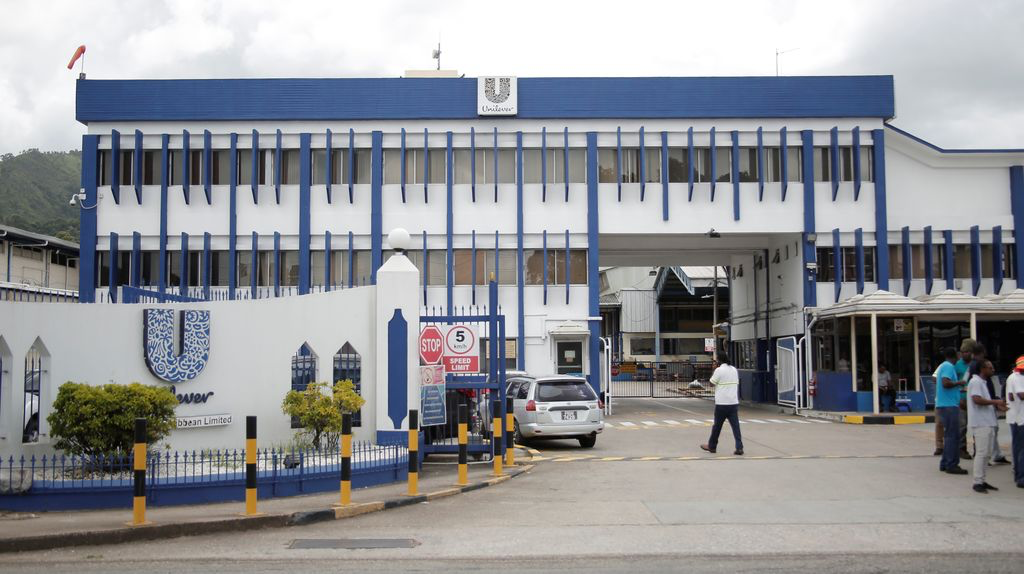(Trinidad Guardian) Over 100 workers attached to Unilever may be out of a job at the end of July after the company confirmed it would cease production in T&T.
In a notice on Monday, Unilever confirmed that its supply agreement with a third party, which came into effect after the sale of its Spreads business in 2018 as a key part of its global strategy, would come to an end on July 31, 2022.
Unilever said as a result, all manufacturing and production in Trinidad will cease.
Unilever Caribbean Ltd’s OWTU representative Neil Mc Eachnie confirmed that workers had been informed of the situation.
“(Monday), we were alerted that the company corresponded with the union officially advising of the cessation of manufacturing operations. That would be effected in July of this year,” Mc Eachnie said.
He said 119 unionised workers, and an unknown number of non-unionised would be affected as a result.
Mc Eachnie said the move had been expected since 2019, when over 250 workers were retrenched following restructuring at the company.
“Somewhere around 2019, the company would have indicated that they intended to exit manufacturing and that they had implemented the first phase of a two-phase retrenchment exercise.
“In that first phase, they would have outsourced some of their activities and they will have closed a plant as well. So they closed the plant that produced detergent powders and they outsourced their functions as it relates to warehousing and so on. And so this was not unexpected, it was in fact communicated to us at that point as well,” he said.
He explained that the workers that were not dismissed then had only remained on staff due to the agreement which will end in July.
“They do have a co-packing agreement with a company that purchased their spreads business globally for five more years. And as a consequence of that, they retained such employees as were necessary, to fulfil the requirements of that contract. That contract, based on information provided from Unilever will expire in July of this year.
“As I said, and consequently, they will no longer require the workforce, so that’s the information we were provided with,” he said the company was planning to become an importer and distributor.
“What that means for workers is that we will now join the very long list of persons of people who were previously employed in T&T.
“We will join the breadline basically because we are all to be retrenched,” he said, “The business model that they will be adopting, which is already in train, is essentially a distribution type exercise where they will store their finished goods from wherever they have a manufacturing set up and they will distribute to the local market or throughout the region wherever they have a business interest.”
Both Unilever and Mc Eachnie confirmed that meetings will be held with the representative union to discuss the future of the workers in keeping with their collective bargaining agreement.






